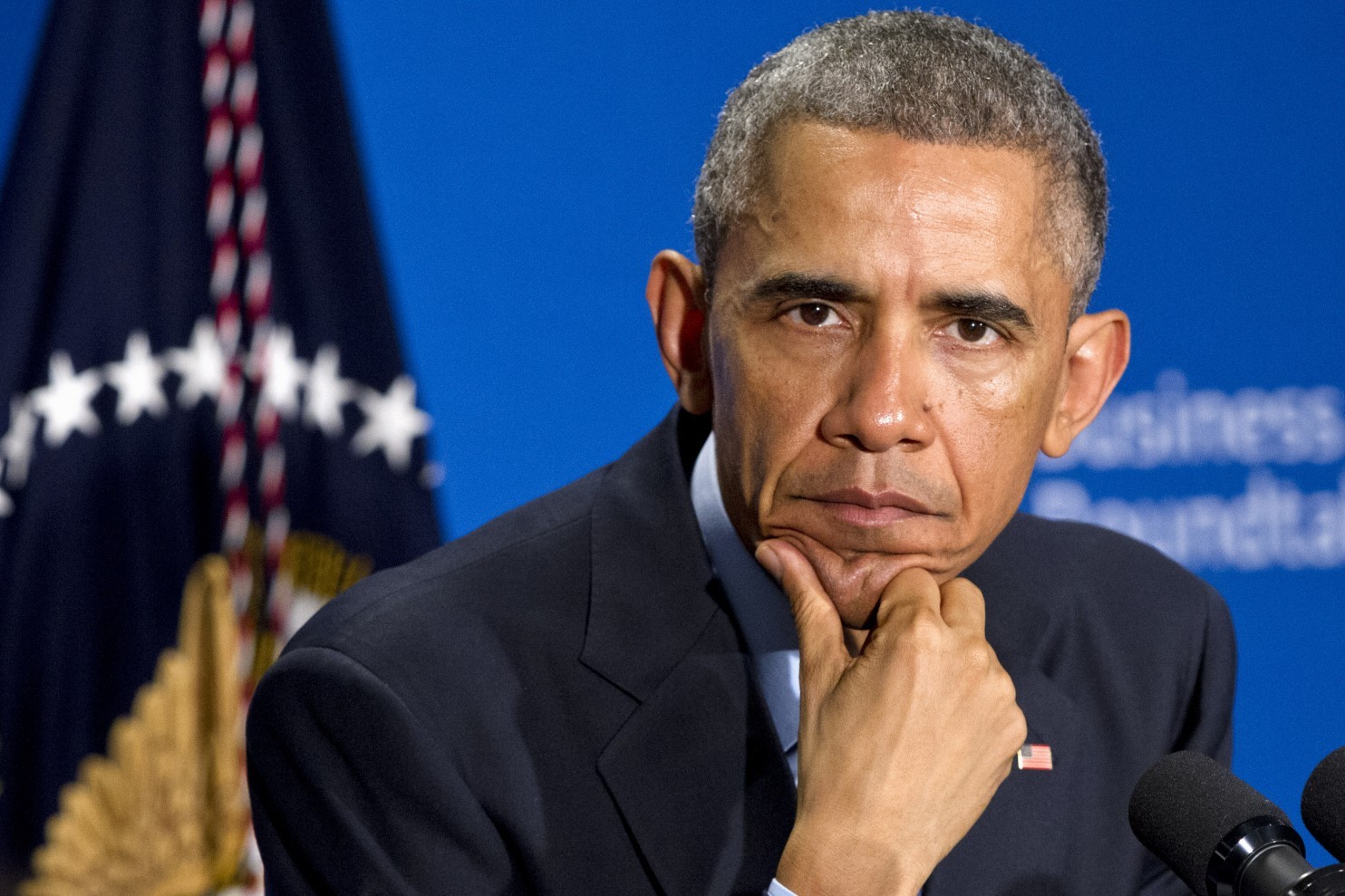President Obama signaled Wednesday that, at least on international trade, he is willing to defy his fellow Democrats and his own liberal base to pursue a partnership with Republicans. Trade represents one of Obama’s best chances for a legacy-building achievement in the final two years of his presidency, but he acknowledged that it is an idea he still has to sell to many of his traditional allies.
Speaking at a gathering of business leaders, Obama offered his strongest public defense of his administration’s pursuit of a major 12-nation trade deal in the Asia Pacific, known as the Trans-Pacific Partnership (TPP), that has been opposed by Democrats, labor unions and environmental groups.
The administration has argued that the trade deals will boost U.S. exports and lower tariffs for American goods in the fast-growing Asia-Pacific region, where the United States has faced increasing economic competition from China.
“Those who oppose these trade deals ironically are accepting a status quo that is more damaging to American workers,” Obama said at the Business Roundtable. “There are folks in my own party and in my own constituency that have legitimate complaints about some of the trend lines of inequality, but are barking up the wrong tree when it comes to opposing TPP, and I’m going to have to make that argument.”
The president spoke shortly before meeting at the White House with Sen. Mitch McConnell (R-Ky.), who will become majority leader next month and has said the GOP would be supportive of Obama’s efforts to liberalize trade policy. Last month in Beijing, Obama met personally with representatives from the Asian nations involved in the TPP talks in a bid to provide momentum to negotiators to reach a general agreement by next spring.
But Obama is facing increasing pressure from the other countries, particularly Japan, to win approval from Congress for fast-track authority, which would allow him to pursue a final deal that could not be changed by lawmakers before a vote on Capitol Hill. Current Majority Leader Harry M. Reid (D-Nev.) blocked a nascent push from the White House last year over fears of blowback from labor unions and other liberal groups.
Administration officials think they have a better chance to win approval for fast-track authority from a Republican-controlled Congress, but in his remarks Obama acknowledged that skepticism remains significant in both parties.
“It is somewhat challenging because of . . . Americans feeling as if their wages and incomes have stagnated” because of increasing global competition, Obama said. “There’s a narrative there that makes for some tough politics.”
Obama said that in talking about the merits of TPP, along with a smaller U.S.-European trade pact, he has urged Democrats not to view it in the same frame as past deals, such as the North American Free Trade Agreement. The president said the TPP aims to boost workers’ rights and environmental standards for businesses in some Asian nations.
“Don’t fight the last war,” Obama said.
Labor officials took issue with the president’s remarks and vowed to fight the administration’s trade push.
“It’s a little bit insulting for him to say anybody who is not in agreement with a particularly flawed trade deal he put on the table wants to maintain the status quo,” said Thea Lee, deputy chief of staff for the AFL-CIO. “We promise not to fight the last war if he promises not to put the last version of the trade deal on the table.”
Even among Republicans, Obama’s task to win support for his trade pacts remains fraught. Some House conservatives said they are opposed to granting the president more unilateral authority in the wake of his executive action two weeks ago to defer the deportations of up to several million undocumented immigrants.
“They don’t want to give him power certainly with the [Environmental Protection Agency]. They don’t want to give him power on human rights. They don’t want to give him power on health care. Do they want to give him power on international trade?” Sen. Sherrod Brown (D-Ohio), who has expressed concerns about the trade deals, said at the Council on Foreign Relations this week.
Brown said that Obama could face opposition from “an interesting coalition of sort of progressive Democrats and anti-Obama tea party Republicans.”


